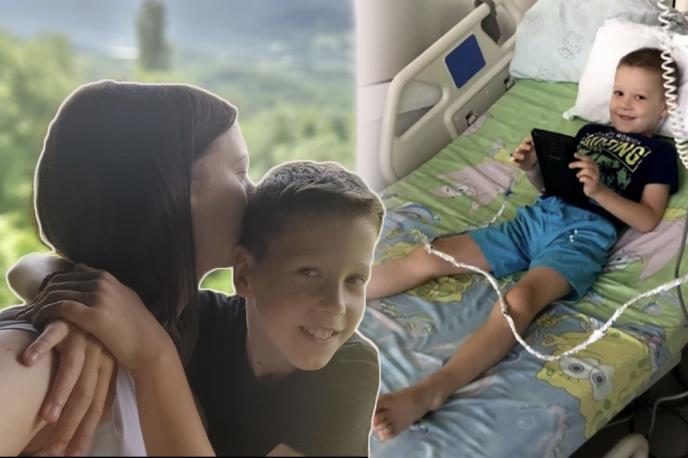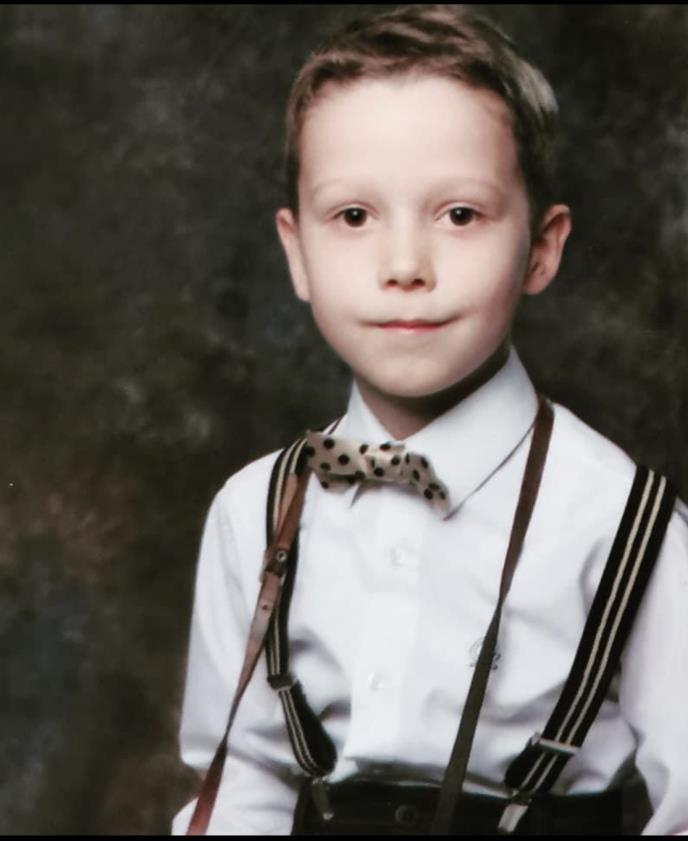'MOM, I'LL CRUMPLE THIS CANCER AND KICK IT': Touching confession of mother whose child is suffering from LEUKAEMIA!

"Mom, don't worry, I'll crumple this disease like this, throw it away, and kick it. The garbage collectors will take it, and it will never come for me again!" These were the words of five-year-old Petar, comforting his mother Sanja Pavlović (35) from Loznica after he was diagnosed with blood cancer, specifically acute lymphoblastic leukaemia, in April 2020
In Serbia, as well as worldwide, February 15 is observed as the International Childhood Cancer Day, and Petar is just one of the little heroes leading this toughest battle - the battle for life.


Petar, as his mother Sanja tells Kurir, led a beautiful and carefree life until the diagnosis, like all children. He went to kindergarten, learned to read and write, and spent time with his older brother Pavle, who was nine years old at the time.
“However, in February 2020, Petar got a fever, it lasted for two or three days, and then subsided. After a few days, it returned. The initial tests did not indicate anything terrible. However, the fever kept coming back, and further tests revealed a significant drop in haemoglobin. We thought it was some temporary anaemia,” Sanja recalls
But Petar's condition worsened. The fever kept returning, and they couldn't bring it down. His parents took him to the hospital in Loznica. All tests were done, and the doctors told them that they didn't know what was going on, suggesting that the child should be taken to the University Children's Hospital "Tiršova" in Belgrade. This was also the period when the coronavirus epidemic started. The parents held onto hope, still thinking it might be a virus or something similar. They arrived at "Tiršova" on April 19, 2020.
Fear is the worst enemy
“They ran a blood test, biochemistry, and at that point, they suspected, and after that, a bone marrow puncture was performed. We did the puncture at eight in the morning, and at 9:30, the nurse came to call me to the doctor's office. That's when I knew... I sat down. The doctor told me that Petar was suffering from acute lymphoblastic leukaemia. She explained the treatment process. She said it was lengthy and arduous, but the recovery process for children with this type of leukaemia is very high. That pain, emptiness, and fear cannot be described in words. And that unbearable, inevitable question: ‘Will my child survive?’ ”
“Fear is the worst enemy,” says Sanja. “You need to be stable, calm, and smiling for your child, but fear eats away at you.” At times, she thought she wouldn't be able to bear it. When Petar fell asleep in the evening, she cried:
“And then one morning, we were about to go for therapy. I made coffee, sat on the balcony, looked at the sky, wiped away my tears, and told myself: ‘No, you won't cry anymore. Let's go with the therapies, and everything will be fine. He will survive; he will be a healthy boy who will continue his life.’ And that morning, I gained strength.”
On the other hand, Petar, as he says, handled everything unbelievably well. At the beginning, Sanja didn't tell him what he was sick with. However, it's hard to deceive children.
“He saw other children in the waiting room. Some were better, some worse. And then we sat down and had a conversation. I told him he had cancer, that he had leukaemia, but that our love was so strong that we would overcome all of it. He just looked at me, hugged me, and said, ‘Mom, we will win this.’ He didn't shed a tear throughout the treatment,” she recalls.
Ready for Therapy
Petar went to every therapy prepared. Sanja too, despite the fear that haunted her:
“Every night, you go to bed and wake up with the same question - will you find your child alive. However, I tried to be strong for him.”
The chemotherapy cycle lasted for eight months - from April to November 2020. During all that time, except when they were in the hospital, Petar and Sanja were in the parent's house of the National Association of Parents of Children with Cancer (Nurdor). The support of other families, as well as the association itself, was invaluable:
“When the doctors at ‘Tiršova’ told us after chemotherapy that there were no more malignant cells in his body, I first called friends from Nurdor on a video call. Everyone gathered; we started jumping, playing, rejoicing... Petar continued to take cytostatics for another year and a half. He goes for check-ups every six months. Although it's not written anywhere that he is cured because it is considered that a full five years must pass from the onset of the disease to be able to say with certainty that the disease will not return, Petar is doing well. He is nine years old, in the third grade, and the family has returned to normal.”
“All families facing the fact that their child has cancer wonder why this happened. But there is no explanation. Doctors don't have it, and neither do we. It's important to fight and know that the diagnosis is not the end. It doesn't matter how many times you fall; what matters is how many times you get up,” concludes this brave woman.
Kurir.rs